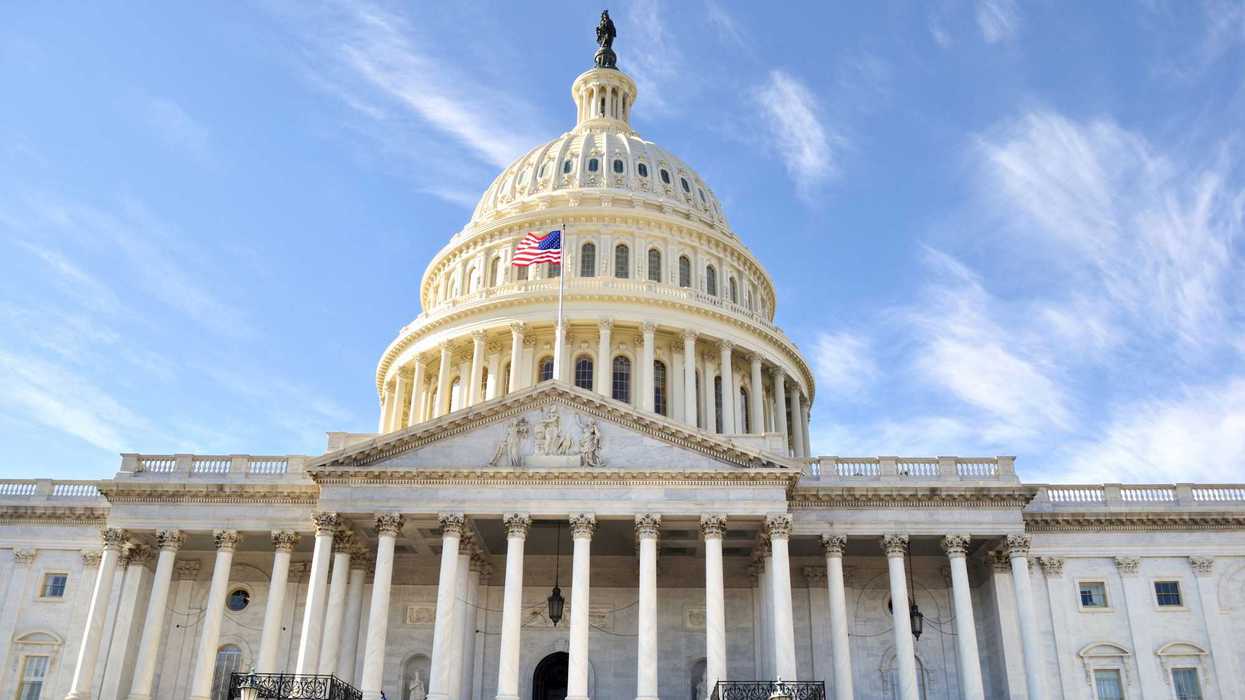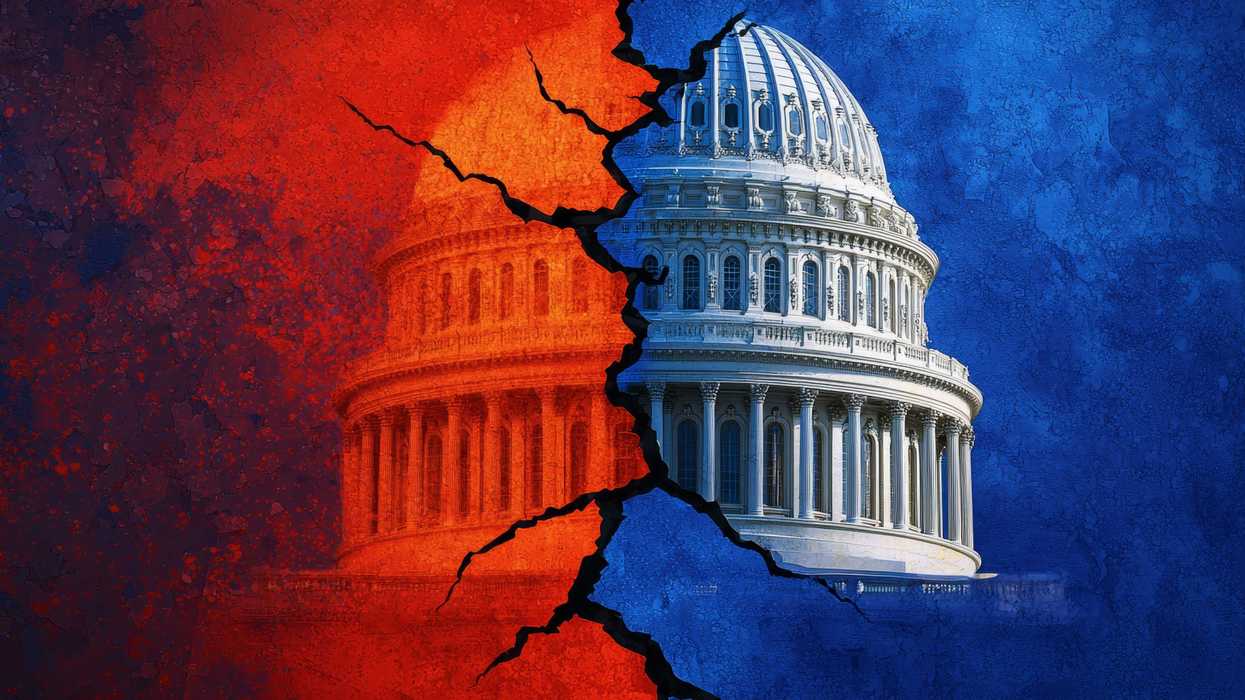Recently, I attended a West Coast conference on the latest research findings in cosmology and found myself sitting in a faculty dining hall with colleagues from around the country. If it had taken place a few months earlier, our conversation would have been filled with debates on the morning’s presentations, but now everything had changed. Against the backdrop of the Trump administration’s attacks on universities and research funding, the question we struggled with was: “When is it time to leave the U.S. and establish our research programs elsewhere?”
One colleague planned to enroll their children in an international school to learn French in case the family had to leave the country in the next few years. Another, whose home institution has been under particularly fierce attacks by the government, said they would stay and fight to support their students, but only so long as their family remained safe. At the same meeting, I heard from a Canadian researcher whose institution was compiling a list of American scientists now considered vulnerable.
That list is likely long. In a poll this spring of U.S. researchers published in Nature, a whopping 75% of respondents reported considering leaving the country. This was most pronounced among respondents at the graduate and postgraduate levels, whose careers are less established and therefore most at risk of being affected by curtailed job opportunities.
I observe this at meeting after meeting with faculty, postdocs, and graduate students, several of whom are already reaching out to explore positions in other countries. At times, the conversations become so overwhelming that someone will ask for a change of subject, a moment of relief when we can return to the scientific debates that brought us together in the first place.
In ordinary times, these debates tend to center on some of the biggest open questions in physics, like seeking to understand how the universe evolved from the seconds after the Big Bang to the present day. My colleagues include theorists and experimentalists who build models, design experiments, and compile data to disentangle these cosmological mysteries. Some have received prestigious awards in recognition of their scientific contributions. Some have been supported by national fellowships for their promise and potential. These are the rock stars that you don’t want to leave.
Most of us are early and mid-career researchers who had been planning a full tenure at U.S. universities. But it is difficult to imagine what our jobs will look like in just three or five years. The sudden grant suspensions and terminations in recent months, coupled with current delays in assessing submitted proposals and budgetary cuts proposed by the Trump administration, point to a significant risk of a long-term research crisis. Labs may have to shut down. Graduate programs may wither in scope and ambition. Research scientists may lose their jobs. I saw a senior professor break down in tears, talking about a colleague who may have to fire his entire research group due to grant terminations. Another wondered aloud if all he will do in the future is read about the scientific discoveries being made elsewhere.
While it is too soon to see how this will play out in practice, it is undeniable that exodus is on the mind of U.S. researchers and that other countries are taking notice. The European Union has recently announced a € 500 million initiative to recruit American scientists. Individual countries, such as Australia, France, and the Netherlands, have started their own dedicated recruitment programs. The potential loss to our country is staggering, considering our preeminent role to date as a scientific leader. In my own field of physics, Americans have comprised over 40% of all Nobel prizes awarded between 1901-2024, far above that of any other country. All of this is now at risk, and the damage may be irreparable for generations.
To avoid this imminent crisis, Congress must reject the proposed cuts to science funding and continue investing in long-term research across scientific fields. Without such action, the country’s scientific engine will be significantly compromised, forcing us to rely on temporary fixes to keep it running. In this emergency state, support for junior researchers must be prioritized. Private foundations and industry sources can make a significant impact by providing stopgap awards that support graduate students, postdoctoral fellows, and junior faculty during this turbulent time. While it is not viable for such support to permanently replace the gap left behind by the federal government, it would help keep science talent in the country for the immediate future, stemming an exodus.
I sit here contemplating this unknown future from my office at Princeton University, in a building where many hallways have a portrait of Albert Einstein. Einstein moved to Princeton in 1933 to escape Nazi Germany and found respite to continue his groundbreaking work on gravitational physics in this quiet town. Shortly after his arrival, he was quoted in an undergraduate publication advising students to “Never regard your study as a duty, but as the enviable opportunity to learn to know the liberating influence of beauty in the realm of the spirit for your own personal joy and to the profit of the community to which your later work belongs.” This sentiment reminds us of the humility that accompanies any scientific pursuit and a scientist’s commitment to the betterment of our world. As a country, we have for decades strongly supported and rightfully reaped the benefits of this dedication. But now, nearly a century after Einstein’s arrival, we must ask ourselves how we envision our future.
For now, I am committed to staying, motivated by a desire to support the younger generation currently in training. To me, fighting for the future of science in this country means doing my day-to-day job to the best of my ability, despite the strong headwinds. It is an attempt to save what is possible, so that junior researchers who leave the country now may have something to return to in the future.
I simply cannot shake the hope that the time will come again when Einstein’s words resonate, and my colleagues and I can gather around the lunch table and return to discussing the science that excites us most.
Mariangela Lisanti is a professor of physics at Princeton University, a research scientist at the Flatiron Institute, and a Public Voices Fellow with the OpEd Project. Her views as expressed here are not necessarily those of any employer or other institution.



















 Mayor Ravi Bhalla. Photo courtesy of the City of Hoboken
Mayor Ravi Bhalla. Photo courtesy of the City of Hoboken Washington Street rain garden. Photo courtesy of the City of Hoboken
Washington Street rain garden. Photo courtesy of the City of Hoboken
